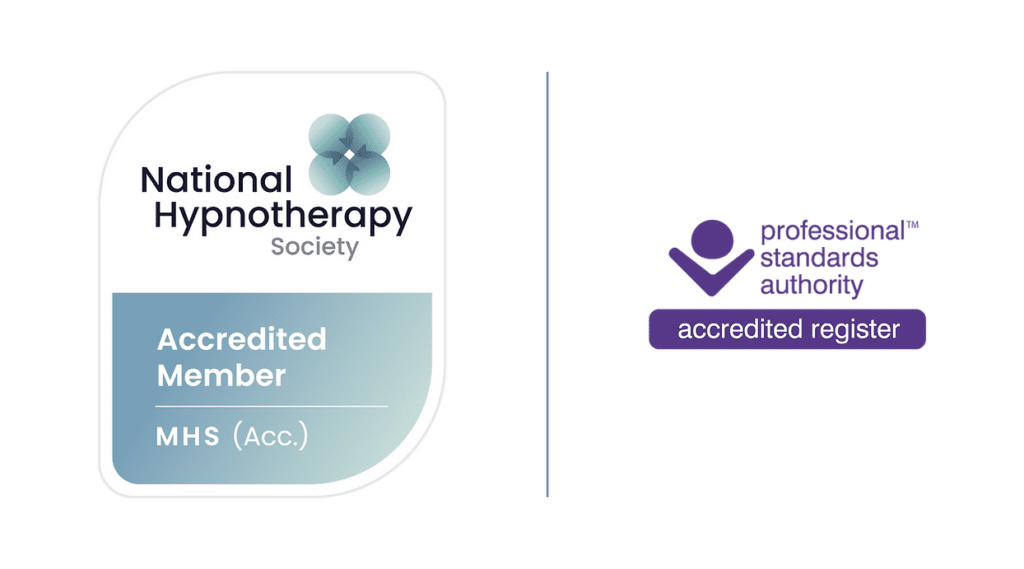Frequently Asked Questions
Find out more about the alternative therapies I offer.
Please view the most commonly asked questions about the therapies I offer. Should your question not be answered here, please do get in touch and I will be happy to provide you with further information.
Over the course of a person’s life, their subconscious mind will have formed learnt behaviours in the form of beliefs, patterns and programmes, right back as far as childhood. Hypnotherapy connects with the subconscious mind to reprogramme any beliefs, fears or limiting behaviours that may be holding a person back. The relaxed state brought about through hypnosis opens a person’s subconscious mind making it receptive to positive suggestions aligned with conscious goals. This therapy is a proven method that induces deep relaxation and heightened suggestibility. While in this state, the subconscious is more accessible, allowing therapeutic suggestions to address issues like anxiety, confidence, phobias, sleep problems, negative habits, and many other concerns.
Neuro-Linguistic Programming (NLP) is the art of speaking and understanding the mind’s own language. It was created by Richard Bandler and John Grinder in the 1970s, who studied and modelled the best communications and therapists of that time and subtracted the best parts. It is often used in hypnotherapy, since it has the potential to achieve long-lasting results more quickly than more traditional methods. This is because NLP is not focused exclusively on analysing the reasons behind an issue, but more on the desired outcome and how to achieve it. It delves into the intricate interplay among neurological functions, language, and acquired behaviour patterns. By modifying language and behaviour, individuals can reshape their perceptions of the world around them. It is widely used in counselling, the performing arts, business, sports and the military.
IEMT (or Integral Eye Movement Therapy) is a form of therapy that has been shown to be effective in treating issues such as depression, anxiety, fears/phobias, emotional blocks, anger/resentments, and traumas. IEMT involves the use of various techniques, depending on individual needs. The core of these is eye movements combined with relevant and targeted questioning, which enables the client to process and discard bad or unhelpful reactions to memories and change emotional imprints (i.e., how they have learned to feel, believe, or behave in a certain way). Memories and imprints can sometimes become stuck (neurologically-speaking), and this can lead to negative emotions and unwanted behaviours. IEMT can help people remove these imprints or labels safely and comfortably, and prevent the reactions to them that may have developed into anxiety, depression, addictions, etc.
Moving the eyes along different axes while focusing on a particular memory or emotion accesses the different parts of the brain where those memories and emotions are stored. This, together with the mindful focus on the eye movements themselves (carried out in a calm, relaxed state in a safe space), cancels or softens certain problematic impressions made in the brain, freeing the brain to process those memories and change their emotional coding. This is like moving a memory or imprint from a ‘current’ or short-term memory - where it triggers negative responses as if the event or emotion were taking place now - to long-term memory, so that it is no longer experienced as current. As a result, it no longer triggers bad or uncomfortable feelings. Another benefit of IEMT is that it can be carried out ‘content-free’. This removes the possibility of the re-entrenchment of problematic memories and feelings. Moreover, the fact that the client does not need to talk about the details of specific memories/emotions means that they typically find this approach more comfortable, especially when the memories are particularly painful or embarrassing.
The Emotional Freedom Technique (EFT), commonly known as tapping or psychological acupuncture, offers a needle-free alternative to traditional acupuncture. This approach integrates psychology and Chinese medicine to create a holistic method that harmonises the mind, body, and emotions. Through gentle tapping on meridian acupoints, EFT aims to restore equilibrium to the body-mind system, which can be disrupted by adverse memories or experiences. This technique, known for its safety, effectiveness, and user-friendly nature, is particularly well-suited for self-improvement. By combining acupressure with psychological principles, EFT works to realign the body's energy system, addressing obstacles and physical symptoms associated with negative emotions through targeted tapping on specific meridian points. Through this process, individuals can identify and release negative emotions and beliefs, ultimately reducing stress and anxiety.
Past Life Regression is a gentle and safe form of hypnotherapy that takes a person back through time in a deeply relaxed state, leading them to another time/place/life by accessing memories and experiences that are normally hidden deep within their subconscious mind and bringing them into awareness to help better understand the here and now. People often recall such memories consciously, or sometimes as a feeling of ‘deja vu’ or even as dreams (we dream with our subconscious mind).
Reiki is a holistic complementary therapy that promotes deep relaxation and natural healing using a technique that utilises ‘universal energy’ through the palms, either above the body or with the hands on the body (the same energy that is worked with in Acupuncture, Shiatsu, Tai Chi and Yoga). It is an effective, simple and natural method of healing the physical, emotional, mental and spiritual self. It originated in Japan in the early 1900s and was developed by Mikao Usui. At that time, it was mainly used for self-healing and spiritual development. It later became a method for treating others when it came to the Western world.
When working with children and young people, there are specific factors to keep in mind. Just like any other client, your child needs to actively participate in their therapy. The fact that you recognise a problem or desire a change for them is not sufficient. They must be willing and motivated to engage in the process of change and apply the strategies acquired during sessions.
When working with younger children, I find it unnecessary to explain hypnosis as I would to adults. Instead, I describe it as pretending or imagining, engaging in a bit of daydreaming, pretending to be in a different place - which is something they already know how to do, even if they weren't aware of it. Following sessions, there is normally homework to do, whether it be listening to a recording, keeping a chart, or practising what they have learnt.
In some cases you might also have to rethink some family routines to align with the adjustments your child is going through. If both you and your child are open to making changes, I would be delighted to assist you.
During a session with a young person over the age of 12, I will assess how the presence or absence of the adult affects the young person. Typically, I tailor my approach to the young person's desires, taking into account their age and maturity level. However, the final decision will be made following our initial meeting.
Factors to consider include:
The young person's comfort level with the adult present.
Whether the young person may feel restricted with the adult around.
The possibility of the adult speaking for or over the young person if they are present.
The adult's potential to feel more relaxed when accompanying the young person.
The likelihood of the young person taking more ownership of therapy if unaccompanied.
For children under 12, a chaperone will need to be present in the room during the session.
If your child is between 12 and 16 years, they may choose not to have a chaperone. The decision is based on their preference, your input, and a 'Gillick competency' evaluation.
A permission form must be signed for children 16-17 years. However, they can be treated as an adult and seen without a chaperone, unless there are specific reasons where this may not be suitable for them.
Exploring an issue during the discovery call will typically provide enough insight on what the best approach for you to take is. If you’re not sure of the depth of your situation, I offer Dive In single sessions without ongoing commitment. Any further commitment will be discussed and agreed with you as we work together.
It is advisable that you do not drink any beverages containing caffeine two hours prior to your session, since they are stimulants that will make it harder for you to relax fully. To assist with relaxation, it is recommended that you wear clothing that you feel comfortable in.
Like any form of therapy, there are no guarantees. Hypnotherapy, NLP, IEMT, and EFT are very powerful forms of therapy that have a much higher success rate if you are committed to helping yourself change.
Everyone’s response is different. Some people can experience significant change after just a few sessions, but others can need more. On average, cases tend to require approximately between 4 and 10 sessions. Following the discovery call, I will suggest what package I feel would be appropriate for you. With the Dive In package there is no pressure for you to commit. At the end of each session, we will agree jointly how many other sessions will be necessary (if any).
Should you need to cancel or rearrange your appointment, please provide 48 hours’ notice. If the notice is less than 48 hours, you will be required to pay 50% of the fee, and if less than 24 hours, you will be required to pay in full.
“Renewal requires opening yourself up to new ways of thinking and feeling.”
Insight
Latest From The Blog.

Frequently, people inquire about the reason behind using dandelion images on my website. I wanted to shed some light on this decision as it symbolises

I am currently observing a trend with my clients where many young individuals are struggling with issues such as low confidence, self-esteem, anxiety, friendship challenges,

Self-love has remained an alluring concept throughout history, captivating the minds of humans and casting a spell of wonder and intrigue. Yet, like the shifting tides







